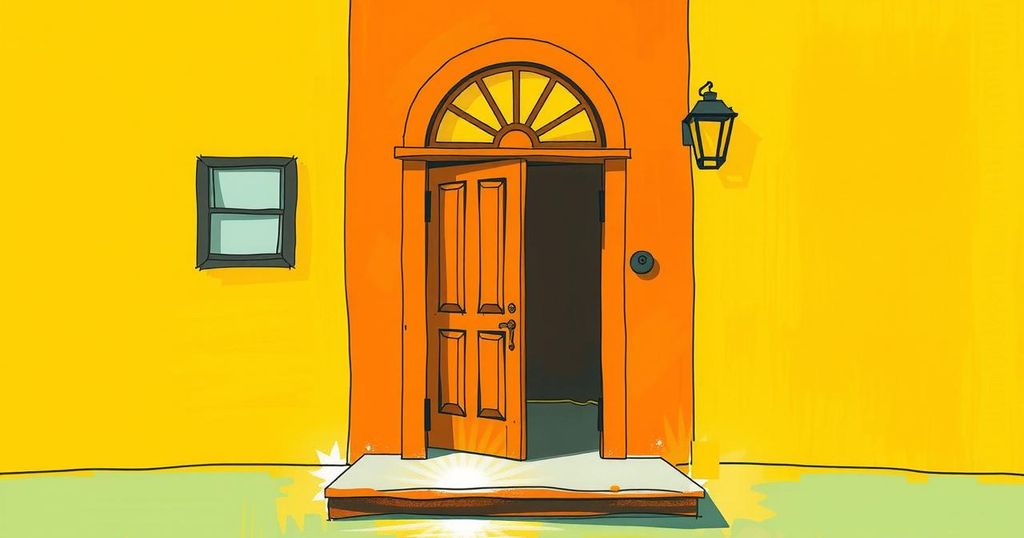The Debate Over South African Refugees: A Clash of Race and Asylum Policies

A small number of South African refugees arrived in the U.S. amid controversy among left-leaning commentators, who are expressing discontent primarily because these refugees are white. The Episcopal Church has halted its partnership in resettling refugees, citing commitments to racial justice, while others criticize the perceived hypocrisy in national refugee policies. This situation showcases conflicting views on race and privilege in asylum discussions.
A recent arrival of South African refugees to the United States is stirring controversy, particularly among left-leaning factions. A total of 59 South African refugees arrived in the U.S. on Monday after a presidential executive order indicated their need for asylum. One would assume that such a scenario would be welcomed by Democrats, who position themselves as advocates for refugees, but reactions reveal a different narrative. Instead, many commentators are expressing significant discontent.
The uproar from some liberal circles appears to stem from the fact that these refugees are predominantly white, a factor that seems to complicate their acceptance. Notably, the Episcopal Church announced it would terminate its partnership with the government over refugee resettlement, citing its commitment to racial justice, leading to the rejection of substantial federal funds.
Despite the low number of admitted refugees compared to broader immigration trends, the situation has prompted backlash. Former Representative Donna Edwards remarked on MSNBC that the rejection of these refugees reflects a deeper issue, asserting, “In my view, what makes it different is that they are white South Africans. The president, in my view, has not hidden his racism behind a bushel.”
Interestingly, Ashley Allison, a former Biden campaign director, responded on CNN, suggesting that the Afrikaners seeking asylum should consider returning to their ancestral homelands like Germany, disregarding their long-standing presence in South Africa. This raises questions about national identity and the complexities of historical ties. The Afrikaners’ claims for asylum are compounded by reports of violence and land confiscation threats against them in South Africa as part of reparation discussions.
Senator Chris Van Hollen also weighed in, highlighting alleged hypocrisies in the refugee policies. He claimed that while the administration permits 60 white South Africans to seek refuge, it simultaneously deports individuals from other countries facing real dangers. His take was, “This is the sick global apartheid policy being adopted by this lawless administration.” Yet, evidence suggests that many of these Afrikaners have faced violent attacks, reinforcing their need for asylum.
Asylum claims by the Afrikaners coincide with increasing reports from South Africa about racially charged attacks against them, a reality that has been underscored by figures such as Elon Musk. He expressed concerns about the dangers facing white landowners, exacerbated by governmental policies threatening land confiscation. In stark contrast, the South African ruling party denies the existence of Afrikaner refugees, framing their claims as attempts to evade justice for historical injustices.
The political fallout is significant; the left’s rejection of these refugees exhibits a broader reluctance to support those they deem ‘privileged’ descendants of colonial settlers. This reaction may reveal an underlying bias – a perception that granting asylum to white South African farmers contradicts their stance on racial equity. By focusing the discourse on why these refugees should be excluded, they inadvertently expose a contradiction inherent in their pro-refugee narrative.
Ultimately, this incident sparks a complex discussion about asylum policies, historical context, and the intersection of race and privilege in the refugee system. The left might be shooting themselves in the foot here, actively illustrating that when it comes to asylum, perhaps some believe that white individuals truly need not apply.
The arrival of South African refugees has ignited a debate regarding race, privilege, and asylum policies within the United States. The reaction from some liberal factions highlights inconsistencies in their pro-refugee stance, revealing complex dynamics around identity and historical privilege. As discussions unfold, the case of the Afrikaners raises critical questions about who deserves refuge and why, encapsulating a poignant moment in the debate on immigration and asylum.
Original Source: www.dailysignal.com







